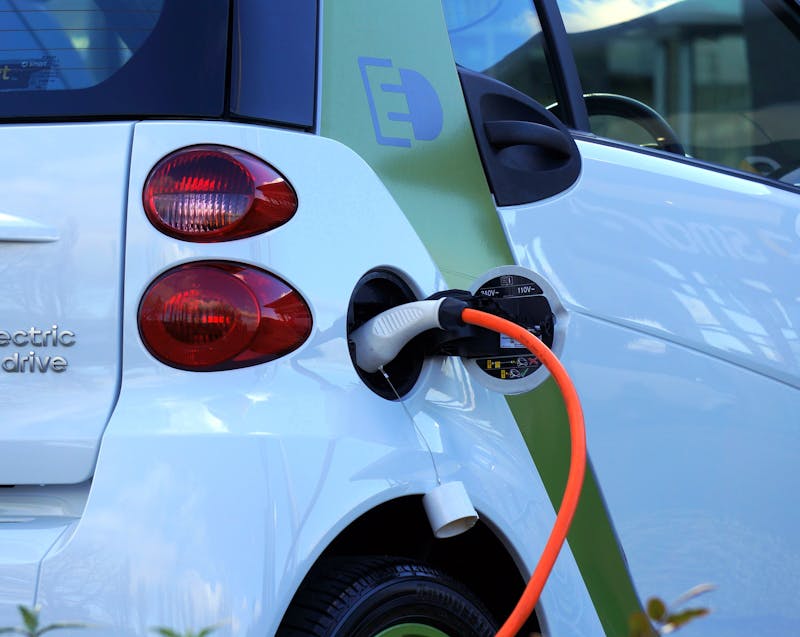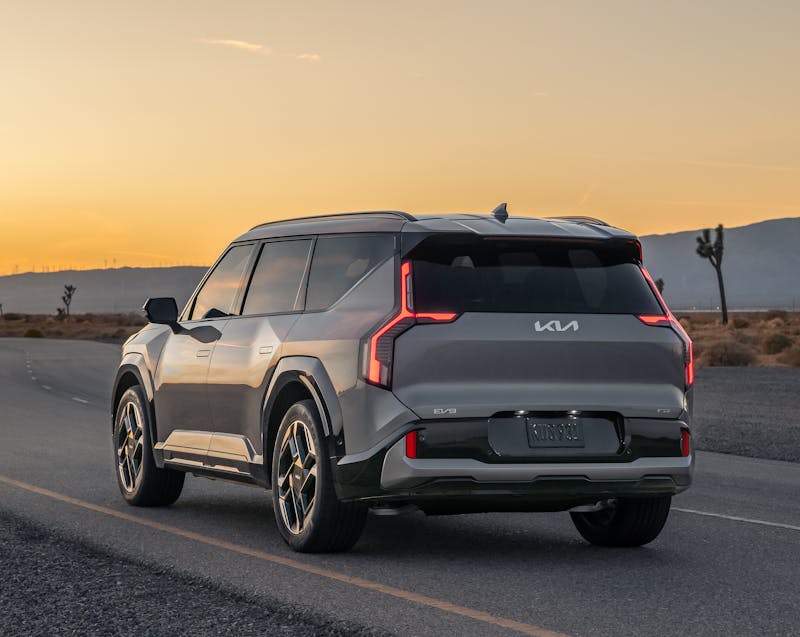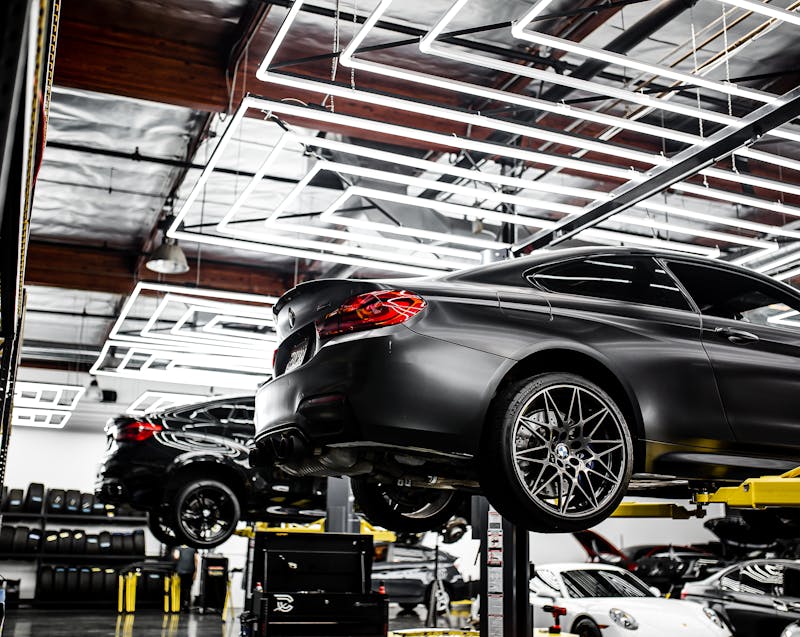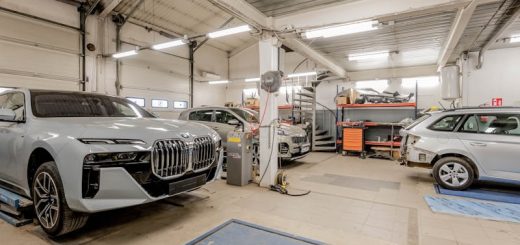What Maintenance Does an Electric Car Need: Tips for Extending Vehicle Life


- EVs require less maintenance than gasoline vehicles because they have fewer moving parts and no oil changes.
- Battery care is critical—avoid frequent fast charging, keep charge levels between 20–80%, and protect it from extreme temperatures.
- Tires and brakes still need attention, with more frequent tire rotations due to EV weight and regular brake system checks.
- Software updates matter, as they improve performance, safety, and efficiency over time.
- Routine inspections extend vehicle life, helping detect issues early and preserving resale value.
- EVs are cheaper to maintain long-term, but battery replacement is a major potential cost.
Electric vehicles (EVs) are becoming increasingly popular as car buyers look for eco-friendly and cost-efficient alternatives to traditional gasoline-powered cars. One of the major attractions of EVs is their reduced maintenance requirements compared to internal combustion engines. However, this doesn’t mean electric cars are maintenance-free. Like any vehicle, they require regular care to ensure safety, efficiency, and longevity. By understanding the unique needs of EVs, car owners can maximize their investment and extend the life of their vehicle.
In this article, we’ll break down the essential maintenance tasks for electric cars, highlight common misconceptions, and share tips for keeping your EV in peak condition.
Why Electric Cars Require Less Maintenance
Electric cars don’t have the same mechanical complexity as gasoline vehicles. They lack parts such as spark plugs, exhaust systems, timing belts, and fuel pumps—components that typically need replacement in traditional cars. Instead, EVs rely on fewer moving parts, reducing the chances of wear and tear.

This streamlined design translates to fewer routine repairs and lower long-term maintenance costs. However, EVs are not entirely hands-off. Their batteries, tires, brakes, and cooling systems still require attention. By staying proactive, car owners can prevent small issues from becoming expensive problems while ensuring a smooth driving experience.
What Maintenance Does an Electric Car Need?
When considering EV maintenance, it helps to think in terms of critical systems—battery, tires, brakes, fluids, and software. Each plays a vital role in keeping your vehicle reliable.
Key maintenance areas include:
- Battery Care: Monitor charging habits and avoid frequently draining the battery to very low levels. Keeping it between 20% and 80% helps preserve longevity.
- Tire Maintenance: Regularly rotate tires and check pressure. EVs are heavier due to batteries, which means tires may wear faster.
- Brake System: EVs use regenerative braking, which reduces wear, but brake pads and fluids still require periodic checks.
- Fluids: While EVs don’t need oil changes, they still rely on coolant, brake fluid, and windshield washer fluid.
- Software Updates: Manufacturers often release over-the-air updates that improve performance and add features.
By addressing these areas, EV owners can enjoy both long-term savings and peace of mind.
How to Take Care of Your EV Battery
The battery is the most critical and expensive component of an electric car. Proper care can add years to its lifespan and ensure consistent performance. Most EV batteries are designed to last between 8 and 15 years, but driving habits and charging practices play a big role in longevity.
Best practices for battery maintenance include:
- Avoid frequent fast charging unless necessary, as it generates excess heat.
- Park in shaded areas or garages to prevent overheating in hot weather.
- Use pre-conditioning features to warm or cool the battery before driving in extreme temperatures.
- Schedule regular battery health checks during service appointments.
By treating the battery as the heart of the vehicle, owners can significantly reduce long-term replacement costs.
Extending Vehicle Life Through Regular Inspections

Routine inspections remain essential for electric vehicles. Even though they have fewer mechanical parts, issues can still arise with suspension systems, steering components, and cabin features. Regular service checks help detect small problems before they escalate into costly repairs.
Inspection tips for EV owners:
- Schedule tire rotations every 6,000–8,000 miles.
- Replace cabin air filters as recommended by the manufacturer.
- Test lights, wipers, and safety systems regularly.
- Ensure software and navigation systems are up to date.
A consistent inspection routine not only boosts reliability but also maintains the vehicle’s resale value.
Comparing EV and Hybrid Maintenance Needs
Many car buyers considering an electric car may also explore hybrid vehicles. While hybrids still have gasoline engines in addition to an electric motor, their maintenance demands differ. If you’ve ever asked, What kind of maintenance does a hybrid car need?, the answer lies in balancing care for both engine components and electric systems.
Hybrids require oil changes, exhaust maintenance, and timing belt replacements, along with battery and regenerative braking care. By contrast, fully electric cars eliminate most engine-related tasks but emphasize battery management. For car buyers deciding between the two, understanding these distinctions can help make an informed choice.
Are Electric Cars Cheaper to Maintain Long-Term?
One of the strongest selling points of EVs is the potential savings on long-term maintenance. Studies have shown that EV owners spend significantly less on repairs and upkeep compared to traditional vehicles. While initial purchase costs can be higher, the reduction in routine services—like oil changes and exhaust repairs—adds up over time.
Still, it’s worth remembering that the battery remains a major expense if replacement is ever required. Extended warranties or battery coverage can help mitigate this risk. For most drivers, however, the overall savings and environmental benefits make EV ownership worthwhile.
Final Tips for Maximizing EV Longevity
To get the most out of your electric car, consistency is key. Here are some final takeaways for extending vehicle life:
- Follow the manufacturer’s service schedule closely.
- Drive gently to reduce stress on tires and suspension.
- Keep software updated to benefit from performance and safety improvements.
- Store the car in moderate conditions to protect the battery.
- Consider professional inspections even if the vehicle shows no obvious issues.
By combining mindful driving habits with proactive care, EV owners can ensure their vehicles remain reliable, efficient, and valuable for many years.

